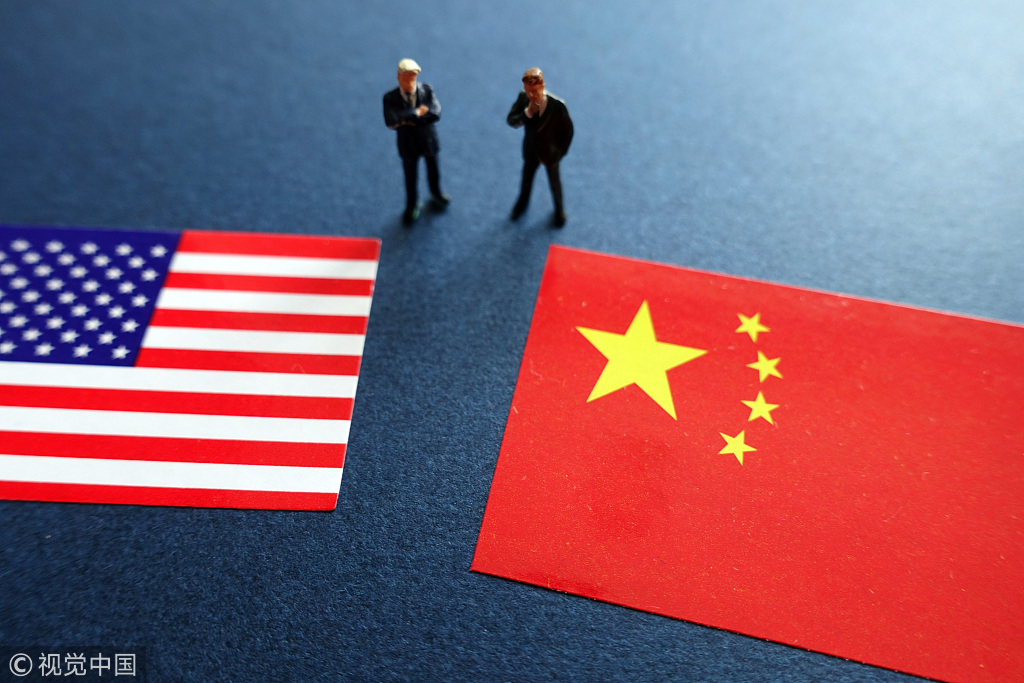Paulson: Keeping competition healthy 'vitally important'
By ZHAO HUANXIN IN WASHINGTON | China Daily Global | Updated: 2020-12-15 12:31

Stabilizing the relationship between the United States and China is an "essential" step for the incoming US administration to restore global cooperation, and keeping the competition healthy is "vitally important" to repair the damaged relations, former Treasury secretary Henry Paulson has said.
"Until the US and China can establish where they can cooperate and where they will compete, there will be chaos, which limits global economic growth and threatens peace," Paulson wrote in an op-ed posted Monday on The Wall Street Journal's website.
Paulson, who had warned that the two countries were heading to an "economic iron curtain" two years ago, has recently called for policymakers to "get competition with China right", arguing that competition without unnecessary confrontation should be the goal.
He noted that the incoming Biden administration has a historic need and opportunity to restore global cooperation, but that will be difficult without restoring global order.
"An essential step in that process is stabilizing the US-China relationship," which has been fraught with stress in a host of areas, including more tariffs, heightened restrictions, revoked visas, fewer student and scholar exchanges, and inflammatory rhetoric.
In his opinion piece "How to Fix Our Relationship With China", Paulson largely reiterated many of his points made at the Bloomberg New Economy Forum on Nov 16, where he called for efforts to get the competition right, which he said is baked into the relationship of the two countries.
"Competition without unnecessary confrontation should be our goal — because confrontation without effective competition has produced some poor results for the American people," Paulson said at the forum.
"It has damaged our economy. It has stunted our export opportunities. In time, it will threaten the peace of the world and doesn't make us safer," he wrote in the article. "And so, we will have chaos and conflict if we cannot get this right."
The US needs a "clear-eyed but productive" US-China relationship, built on what he called a "targeted reciprocity", according to Paulson.
Paulson also appealed to people to reject the notion that the US does not benefit from an economic relationship with China.
"Indeed, our workers and farmers have the potential to benefit to a much greater extent from a more balanced relationship with the world's fastest-growing major economy," Paulson wrote.
As the two largest global economies, it is in the interest of Americans, Chinese and the world that the US and China find a way to reboot economic growth, he added.
Paulson, who also previously led Goldman Sachs Group Inc, cautioned that the actions taken by the current administration out of concerns of "national security" will "do more to hurt America's credibility, leadership and economic competitiveness than halt China's progress".
For example, preventing legitimate Chinese companies from US capital-market listings on vague national-security grounds only makes London, Hong Kong or Tokyo more attractive, according to Paulson.
As the US is geared to usher into a new administration, there have been increasing voices in both countries calling for managing their competition well to achieve a cooperative competition.
Henry Kissinger, the former US secretary of state, also warned of the consequences of an ever-souring relationship between the two countries.
At the Bloomberg forum last month, Kissinger urged Washington and Beijing to define what to avoid and achieve, and to forge a "strategically stable relationship" capable of preventing a catastrophe comparable to World War I.
Also last month, Fu Ying, a former ambassador and vice-foreign minister of China, noted that there is no denying that China-US relations have suffered serious damage over the past four years.
Both governments have heavy domestic agendas to attend to, and so even if competition between them is unavoidable, it needs to be managed well, cooperatively, Fu wrote in an op-ed for The New York Times late last month.
She said that it is possible for the two countries to develop a relationship of "coopetition", that is cooperation plus competition, by addressing each other's concerns.
Chinese Ambassador to the US Cui Tiankai last week warned that the continuing deterioration of US-China relations, already at their lowest point in decades, will cause "irreparable damage" to the fundamental interests of both countries.
"We do have differences and disagreements, but our shared interests always come first, so much so that no difference justifies any conflict or confrontation," he said at a virtual US-China Business Council 2020 annual gala last Wednesday.
























